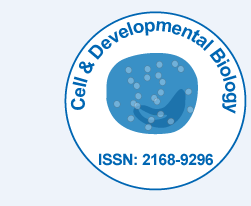
Cell & Developmental Biology
Open Access
ISSN: 2168-9296

ISSN: 2168-9296

Nobuaki Furuno
Associate Professor, Institute for Amphibian Biology, Graduate School of Science
Hiroshima University, Japan
1978-1982 Department of Biology, Facuty of Science, Kyushu University Awarded the degree of BSc in Science 1982-1984 Department of Biology, Facuty of Science, Kyushu University Awarded the degree of MSc in Science for the thesis entitled “The change of the 40S rRNA precursor in Xenopus embyos”. Work supervised by Assistant Professor Kobayashi. 1984-1989 Department of Medical Science, Faculty of Medicine, Kyushu University. Awarded the degree of Phd in Science for the thesis entitled “Complete genomic sequence of a cell-cycle negative regulatory gene involved in the onset of chromosome condensation -The human RCC1 gene-“ Work supervised by Professor Nishimoto Research and professional experience 1989-1993 Research Assistant at the Institute of Molecular Biology, Kurume University, working with Professor Sagata 1994-2002 Research Assistant in the Department Biology, Facuty of Science, Kyushu University, working with Professor Sagata Between 1997-1999, Wellcome/CRC Institute, University of Cambridge, Cambridge, granted by Exchange program by Science Council of Japan- Royal Society and Novartis fund. Working with Janathon Pines. 2002-presen Division of Differentiation Mechanism, Institute for Amphibian biology, Graduate School of Science, Hiroshima University Membership of academic societies: Japanese Society of Molecular Biologists. Japanese Society of Developmental biologist, Zoological Society of Japan, Japanese Society for Biological Sciences in Space.
My research interests are cell biology, molecular biology, developmental biology and space biology. Especially, I study the regulation of the cell cycle, meiosis (molecular mechanism of oocyte maturation) and early cleavage (Why embryos perform the cell cycle as fast as somatic cell) and the effects of the hypergravity for the meiosis, early development and metamorphosis. The methods to analyze these them are molecular biology, cell biology and histlogy.